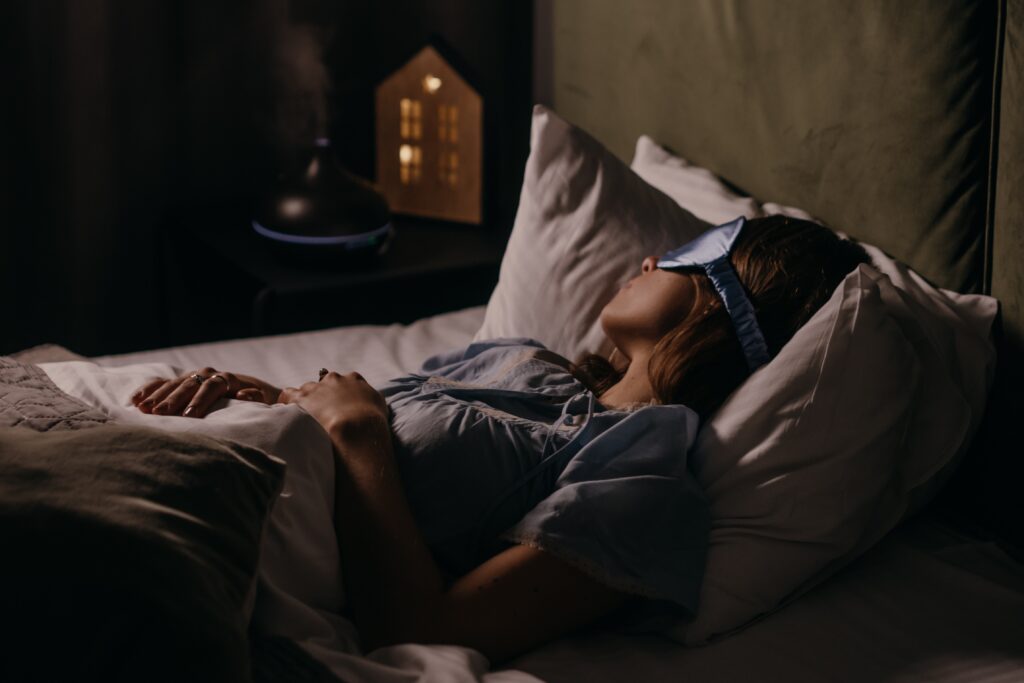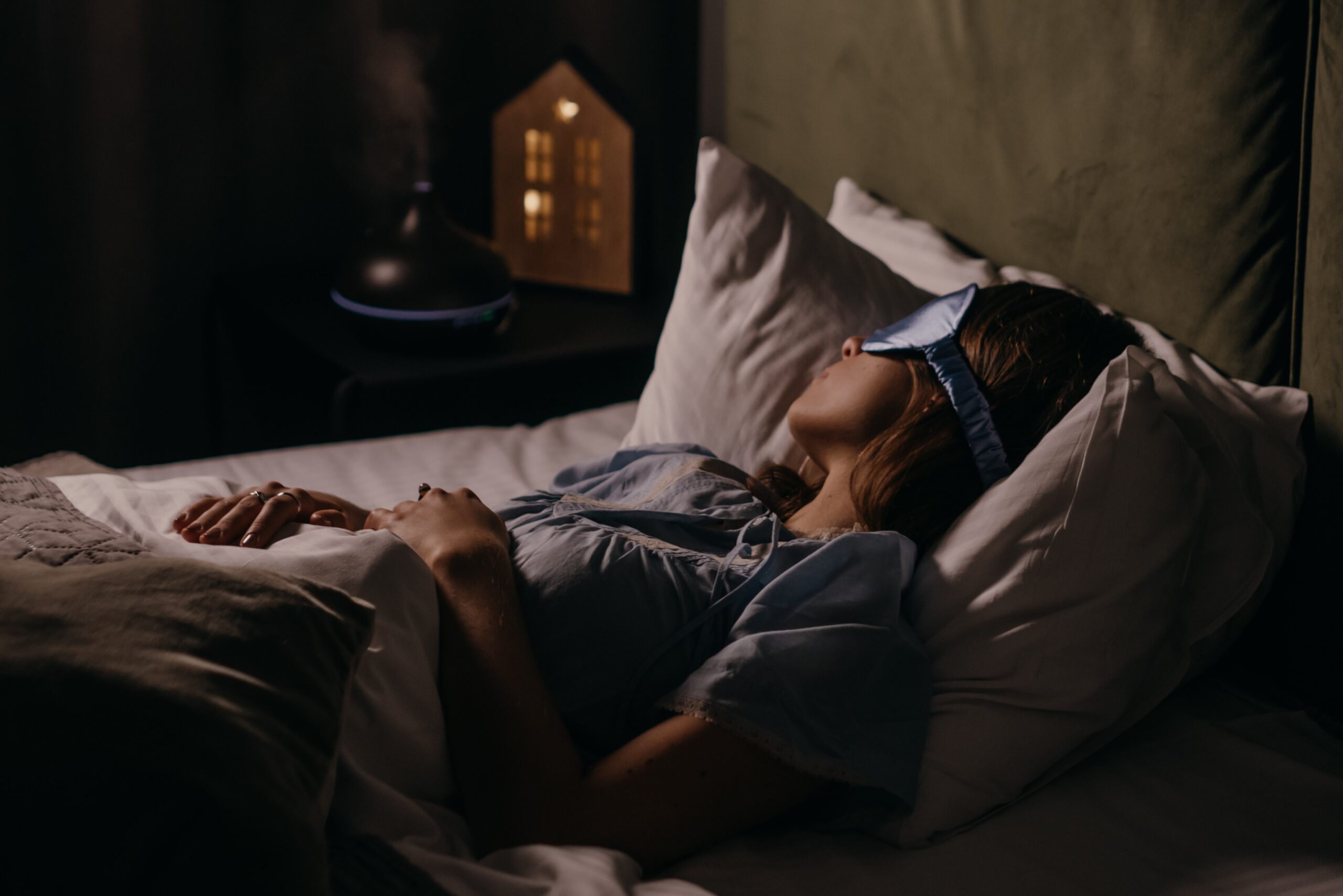
Sleeps is not merely a passive state in which the body rests; it is an active and essential component of human health and well-being. Throughout history, societies have held varying views on sleep. For some, it was a mystical realm, while others saw it as a waste of precious hours. However, scientific research has illuminated the profound importance of sleep and the ways in which it influences our physical, mental, and emotional well-being.
Physical Health:
- Restoration and Repair: During sleep, our body actively repairs and regenerates tissues. This includes muscle repair, tissue growth, and protein synthesis.
- Immune Function: Consistent sleep supports the immune system, enabling it to function optimally. Chronic sleep deprivation can weaken immunity, increasing susceptibility to infections.
- Hormonal Balance: Sleep regulates the release of critical hormones, including insulin, cortisol, and growth hormone. Disruptions in sleep can lead to hormonal imbalances, which in turn can influence weight gain, stress levels, and overall health.
Cognitive Functions:
- Memory Consolidation: Sleep plays a pivotal role in the consolidation of memories. REM (Rapid Eye Movement) sleep, in particular, has been linked to the processing and storage of procedural and spatial memories.
- Mental Sharpness: A full night’s sleep helps maintain attention, decision-making skills, and cognitive speed.
- Creativity and Problem Solving: After a good night’s sleep, individuals often find solutions to problems more readily, suggesting a subconscious problem-solving process that occurs during sleep.
Emotional and Psychological Well-being:
- Mood Regulation: Sleep deprivation is a known mood disruptor. Lack of sleep can lead to irritability, short-temper, and in the long run, increase the risk of mood disorders like depression and anxiety.
- Stress Reduction: Sleep helps to reduce the levels of stress hormones in the body. Without enough sleep, the body can go into a state of chronic stress.
- Resilience: Consistent sleep patterns can increase our ability to handle challenging situations, leading to a greater sense of resilience and adaptability.
The Dreamscape:
- Emotional Processing: Dreams can offer insights into our emotional states and provide a space for us to process emotions subconsciously.
- Creative Insights: Throughout history, various inventors, writers, and artists have attributed their insights and inspirations to dreams.
The Broader Impacts of Sleep Deprivation: The consequences of chronic sleep deprivation extend beyond the individual. It affects productivity, increases the risk of accidents, and has economic implications.
Prioritizing Sleeps: In our fast-paced modern world, the lure of productivity and ’round-the-clock accessibility can tempt us to skimp on sleep. However, understanding its profound impact on well-being should encourage individuals, organizations, and societies to prioritize and respect sleep as a pillar of health.
The Pillars of Physical Health:
- Healing and Growth: The body prioritizes repair during sleep. Growth hormone is secreted, aiding in tissue growth and muscle repair.
- Metabolic Balance: Sleep is closely tied to regulating metabolic processes, ensuring proper digestion, energy use, and weight maintenance.
- Cardiovascular Health: Regular sleep patterns help regulate blood pressure and support overall heart health.
Mental Acuity and Sleeps:
- Memory Consolidation: One of the prime roles of sleep is to help process and store new memories, turning the ephemeral into the enduring.
- Cognitive Clarity: Sleep sharpens attention, judgment, and creativity. A well-rested mind tackles challenges more effectively and innovatively.
- Mood Regulation: A deep connection exists between sleep and our neurotransmitters, impacting our emotional stability and resilience against stress.
Dreaming: The Uncharted Territory:
- Therapeutic Insights: Dreams often mirror our emotions, concerns, and aspirations. They can serve as a sounding board, guiding self-reflection and emotional resolution.
- Problem-solving: Many have woken up with a solution to a problem that seemed insurmountable the day before. Sleep facilitates cognitive restructuring, allowing for innovative solutions.
The Repercussions of Neglecting Sleep:
- Impaired Judgment: Fatigue clouds decision-making, making one more prone to mistakes or risky behaviors.
- Emotional Vulnerability: Chronic sleep deprivation is linked to higher susceptibility to depression, anxiety, and emotional volatility.
- Chronic Health Issues: Over time, inadequate sleep can contribute to a host of health problems, from obesity to heart disease.
Cultivating a Culture of Sleeps:
- Prioritizing Rest: Recognizing the value of sleep is the first step. Societies should emphasize and promote the importance of adequate rest.
- Balanced Lifestyles: Resisting the allure of the “always-on” culture and setting boundaries between work and rest is vital.
- Personal Sleep Sanctuaries: Creating an environment conducive to sleep—dark, quiet, and cool—can immensely elevate sleep quality.
As we delve into the importance of sleep, let’s rediscover and re-emphasize its pivotal role in our lives.
The Myth of the Night Owl and the Hustle Culture
The modern world is obsessed with the “hustle” mentality, where burning the midnight oil is glamorized. While hard work and dedication are commendable, equating less sleep with success is a perilous misconception. The cost of sacrificing sleep is far greater than just a morning yawn—it encompasses mental fog, physical frailty, and emotional volatility.
A Symphony of Restoration
As our bodies enter the realm of sleep, a host of activities commence:
- Physical Recuperation: Cells grow and repair, detoxifying agents get busy cleansing our system, and crucial hormones regulating growth, stress, and appetite are released.
- Mental Refreshment: The brain is hardly inactive during sleep. Neurons form connections, strengthening memories and enhancing learning capabilities. Moreover, the brain’s waste removal system, the glymphatic system, clears out potentially harmful neurotoxins.
- Emotional Rebalancing: Sleep, especially the REM (Rapid Eye Movement) stage, plays a crucial role in emotional regulation. It helps process complex emotions, ensuring emotional stability and resilience.
The Mysterious World of Dreams
Dreams, those fascinating narratives that unfold as we sleep, serve more than just nocturnal entertainment. They’re therapeutic tools and cognitive organizers:
- Emotional Catharsis: Through dreams, we often confront unresolved feelings, traumas, or fears, making them a potent form of subconscious therapy.
- Problem-Solving Guides: Historically, dreams have provided solutions to myriad problems, be it scientific conundrums or artistic inspirations. They allow the mind to restructure and re-analyze dilemmas in unique ways.
The Cascading Effects of Sleeps Deprivation
Neglecting sleep doesn’t just leave you tired—it can have cascading effects on various aspects of health:
- Mental Health: Chronic sleep deprivation significantly increases the risk of mood disorders, anxiety, and depression. The brain’s neurotransmitter balance, vital for mood stability, is disrupted.
- Physical Wellness: From weakening the immune system to disrupting metabolic rates, sleep deprivation can lead to obesity, cardiovascular diseases, and even type 2 diabetes.
- Cognitive Decline: A consistent lack of sleep can lead to impaired judgment, reduced concentration, and hindered creativity.
Reclaiming Sleeps in the Age of Distractions
The modern world, with its blue screens and endless notifications, poses unique challenges to quality sleep. Here’s how to reclaim those precious hours:
- Digital Detox: Make your bedroom a tech-free zone. Blue light from screens can interfere with melatonin production, a hormone vital for sleep.
- Routine Reinforcement: The body thrives on routine. Setting a consistent bedtime and wake-up time, even on weekends, can stabilize the body’s internal clock.
- Creating a Sanctuary: Invest in a comfortable mattress, blackout curtains, and perhaps some soothing white noise. Your sleeping environment should be a sanctuary of calm.
Concluding Reverie
Sleep isn’t a passive act; it’s an active investment in our holistic well-being. In the words of Thomas Dekker, “Sleep is the golden chain that ties health and our bodies together.” To truly thrive in our wakeful hours, we must respect and prioritize our dormant ones. So, as the world around us continues in its relentless pace, let’s make a conscious choice to “Dream On” and recognize the profound impact of sleep on our well-being.

